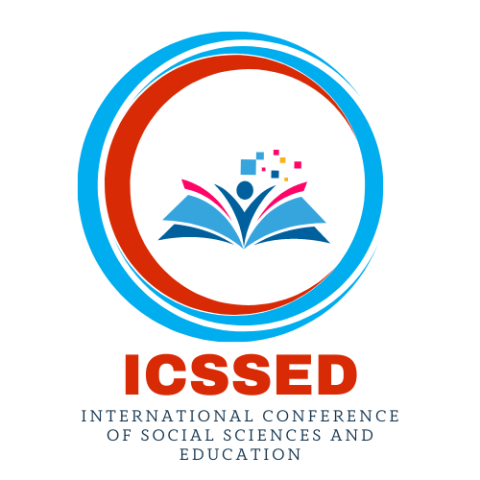ICSSED 2023

THE 6th
INTERNATIONAL CONFERENCE OF SOCIAL SCIENCE
AND EDUCATION (ICSSED) 2023
Background
Like any technology, artificial intelligence offers positive and negative impacts. This nation must reformulate what type of individual, organizational, and institutional skills required by this country.
Why is the formulation required? The reason is that the technology which becomes artificial intelligence (AI) has encouraged the view that digitization and AI will streamline processes and create new jobs. People who hold such a view will encourage the government and the world work to jointly develop new workforce training schemes.
AI era could be the beginning of expertise transfer phases from humans to machines. But, it should be noted that AI also has an "ideology", at least its’ ideology is influenced by those who designed it.
Furthermore, in this AI era, a person no longer meets an expert when looking for answers to various questions since the answers can be given by the machines. Consultants, resource persons, and informants are machines for example ChatGPT-AI Texting Chatbot and chat.openai.com which can answer all our questions by simply typing or commanding the AI. Then, they will provide answers that we require.
It is time for us to accept the presence of AI instead of arguing or rejecting it. The AI development will still happen exponentially. In the future, it is not impossible that there will be big leaps astounding the people of the world. It is natural if there are different views in responding to the leap in technology. Some are afraid, worried, fun, or hope a lot for AI.
The word AI was firstly coined in 1956 at a meeting of mathematicians in Dartmouth Conference in America. When AI was first launched, computers were still very limited and only owned by the state. The more sophisticated, compact, and popular computers have encouraged more powerful AI, especially after the presence of the internet network that connects many things. The present of big data and data science has driven AI leaps in its capabilities.
However, there has been no agreement on a single definition of AI. This is due to the different approaches, namely thinking like a human, behaving like a human, thinking rationally, and behaving rationally.
Viewed from its capabilities, several experts divide the development of AI into three, namely artificial narrow intelligence (ANI), artificial general intelligence (AGI), and artificial super intelligence (ASI).
Currently, AI development is at the ANI level. At this stage, AI is still limited to carrying out focused tasks and cannot expand its own functions. In 2040, it is predicted that AI will reach the level of AGI. At that time, AI can perform a wider range of tasks and can compete with humans.
Viewing at the trajectory above, how does society build in the future? How is the current education structure to prepare for the changes in the future? This international seminar aims to deal with the anxiety above.
Call For Papers
Theme
"Technology, Education, and New Society"
Sub-Theme
- Educational Challenges in relation to Technology/Artificial Intelligence
- Regulation of Technology and Artificial Intelligence
- Social Order of Artificial Intelligence Society
- Artificial Intelligence and the Future of Humanity
- Media Literacy and Disaster Interpretation
Date and Venue
Harper Malioboro Yogyakarta
Harper malioboro yogyakarta, Jl. P. Mangkubumi No.52, Gowongan, Jetis, Yogyakarta City, Special Region of Yogyakarta 55232
26 September 2023
14.00-17.00 WIB
